August 26
Breakfast at the hotel, then waited outside for our escorts, who were late. Struck up a conversation with a woman dressed in a stunning native dress. Turned out that she was a doctor, had a practice in Connecticut and was developing one in Ekiti, and knew that her husband was a classmate of Funmi’s, thus confirming once again that everyone knows Funmi. (He was also a classmate of Sola’s, but did not know him. Sola explained that he was a partyer and cricket player, so did not know studious types, but that Funmi bridged the gap between the two groups. Sola also told us, later in the day, that as a young man, he’d traded his car for a motor bike. One would not predict that Sola was a wild and crazy party guy, knowing him today, but I guess you never know, do you? We run into our hotel doctor/friend again at the market outreach event later in the morning.
Our car came and drove us to the governor’s house, where we met with Debo, the minister for trade and innovation, and a couple other ministers for long discussions on education, teenage pregnancy and a few other topics. To be honest, I’m a bit hazy on the discussions, since I was busy finishing and posting yesterday’s blog. We, the Kipharts and the Olopades had taken Debo and his wife to dinner at a Mexican restaurant when he visited Chicago a month or so ago (the meeting arranged, of course, by Funmi).
After the meeting we were driven to a “market outreach” event at a Women’s Market, arranged by and attended by Bisi (Erulu Bisi Fayemi), the governor’s wife. It’s tough to describe the event, since it seemed part to support the market, part religious, part music (drumming and singing), part dance, part colorful fashion show (each group wearing a different color/patterned dress and head scarf), part speeches ranging from financial matters to health. The event was infused with incredible spirit, energy and enthusiasm. One of the speakers was the leader of the women marketers, who complained in addressing the governor’s wife that she (the speaker) had not been adequately informed and included in planning the event. When the governor’s wife spoke, she praised the leader for her candor and led the group in giving her three cheers. Evidently, speaking truth to power occasionally pays off. The market women hold significant economic power and are a force to be reckoned with. This event clearly will be among the most memorable of our trip.
We sped off, winding rather crazily with our escort’s siren blaring from time to time. Funmi assured us that this was not typical Nigerian driving. They were driving us this way “because they could.” Our protocol people seem hell bent on getting us to our next spot, dead or alive. (Speaking of roads, here’s an extraneous observation I should have made a couple days ago. The highways from Lagos to Ibadan were loaded with hundreds, probably thousands, of oil tanker trucks carrying oil from the eastern oil fields.). Wherever we go, we are accompanied by two men in uniform, with rifles. When I asked Sola about the need for this, he explained that we were guests of the state, and they wanted to make sure we were safe from kidnapping, as we might be a ready target (especially if we had been traveling up North, which we are not). I guess this is comforting, or maybe not.
We were joined in our van by the Minister of Agriculture, Babajide Arowosafe, who was formerly with the United Nations in development, the permanent secretary in that ministry, Mike (I may have made that name up. Permanent secretary is the highest rank one can attain in the civil service in which Mike had served for more than twenty years. The idea of permanent secretaries is to give the ministries continuity beyond the term of a particular governor.), and a consultant to the ministry, Miles Gaisford, who was from Zimbabwe. All of us were extremely impressed with the three agriculture people. Unlike the government officials we’d met in Ghana, these people seemed very bright, knowledgeable in their areas, with well thought-out and practical plans for moving Nigeria’s agricultural world beyond subsistence farming. They had built a dam, which we visited, come up with a plan to help farmers by depositing some $10,000 in an account for each on which they could draw for seed, supplies, etc. in a way such that expenses were paid directly, i.e. the farmers did not have access to the money themselves, negotiated land development deals with foreign countries and induced some talented young people with engineering degrees to go into farming, rather than engineering. The ministry is aiding the farmers in forming cooperatives that will give them both buying and selling power. In Miles, they had hired somebody with broad experience, who seemed both knowledgable and willing to listen to others.
We went to see the dam, then drove on to see some cassava that had been planted, together with maize that produced two crops a year. The cassava was part of an expansive land area.
The region is lovely, physically, with mountains and rain forest areas. Infrastructure needs work as many of the roads are bad. However, the time spent driving is not wasted, as it gives us an opportunity for discussion with the minister, secretary and consultant, both on what we’re seeing, what the long-term plans are and matters extraneous to agriculture. For example, in talking about attracting industry to Nigeria, the secretary told us that one major obstacle is the lack of sufficient and reliable electrical power.
From the cassava area, we drove to a place where a cooperative of farmers was growing rice, and processing some of it themselves in a small wooden building. We had a chance to talk to the farmers and to see the processing facility.
Processing rice and other commodities is very important to the ministry’s plans, because processing adds greatly to the value and therefor the profitability of the operation. Where product is sold raw, most of the profit inures to the benefit of the country doing the processing. We drove a short distance to some of the rice fields where, donning heavy rubber boots, we walked to the muddy fields and heard about the planting and harvesting.
We drove to an area of both natural hot springs and cold water streams. Recently a resort has been constructed and a long wooden pathway has been built through the very pretty area of trees and other vegetation up to the springs. This would be a pleasant area to come to relax and get away, as Funmi and Sola have done a number of times. It also looks as if it would have been a nicer place to stay than The Fountain (I think my initial B- grade was probably a bit generous).
Back to our hotel for a quick shower and change into the fancy clothes we’d been told to bring. We all looked pretty spiffy, if I say so myself, especially Funmi in her dress and spectacular head scarf.
Over to the governor’s compound where the new Ekiti Knowledge Zone project was launched in a large conference room with people seated around a square table. Much preparation and thought has been given to an ambitious (some might say very unrealistic) effort to convert Ekiti, over a generation or more, into a sort of Silicon Valley of Nigeria. Long introductions of the steering committee were made. They are an impressive and diverse group of people, and include Funmi as a member. (An aside here on diversity. We and the Kipharts are adding great diversity to the areas in which we travel. Other than Miles, we are the only white people we’ve seen. Funmi told us that the people who gathered at Mama’s house, and probably many others we’ve encountered, have never seen a white person before.). Several speeches were made, including a couple less-than-impressive presentations by consultants to the committee. The governor formally launched the program in a rather short keynote speech. Photos were taken and then we lined up for a buffet dinner, definitely not lavish, which we ate at the conference tables. This was not the fancy event we had anticipated.
After dinner, Carol and I reconnected and chatted with the deputy governor, who we had sat next to at the dinner the other night, and who had been in education prior to her present position. We both like her, as she appears to have a great sense of humor and a real twinkle to her. We’ve told her that she must come to visit us in Chicago. She and the governor are elected as a pair, in the manner of our president and vice president, and she is confident that they will be reelected next year for another four year term, though she says that they need to be careful that the election is not stolen from them.
Dick, Susie, Carol and I are all filmed, responding to a question about our impressions of Ekiti. At the end, the four of us are asked to put four fingers up on each hand and move them forward and back towards the camera in a signal that the governor should be reelected to another four-year term. It was a surprise to us to learn that in only two days in Ekiti we’d become political operatives.
After exchanging goodbyes and thanks with the governor, we are driven back to the hotel.
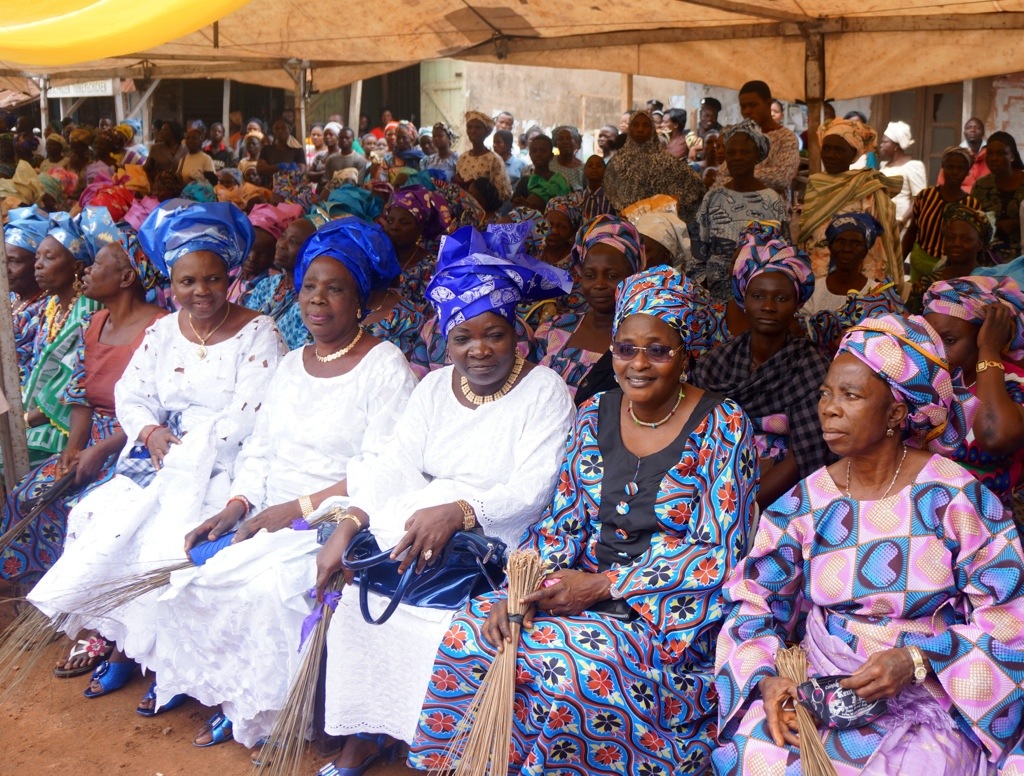
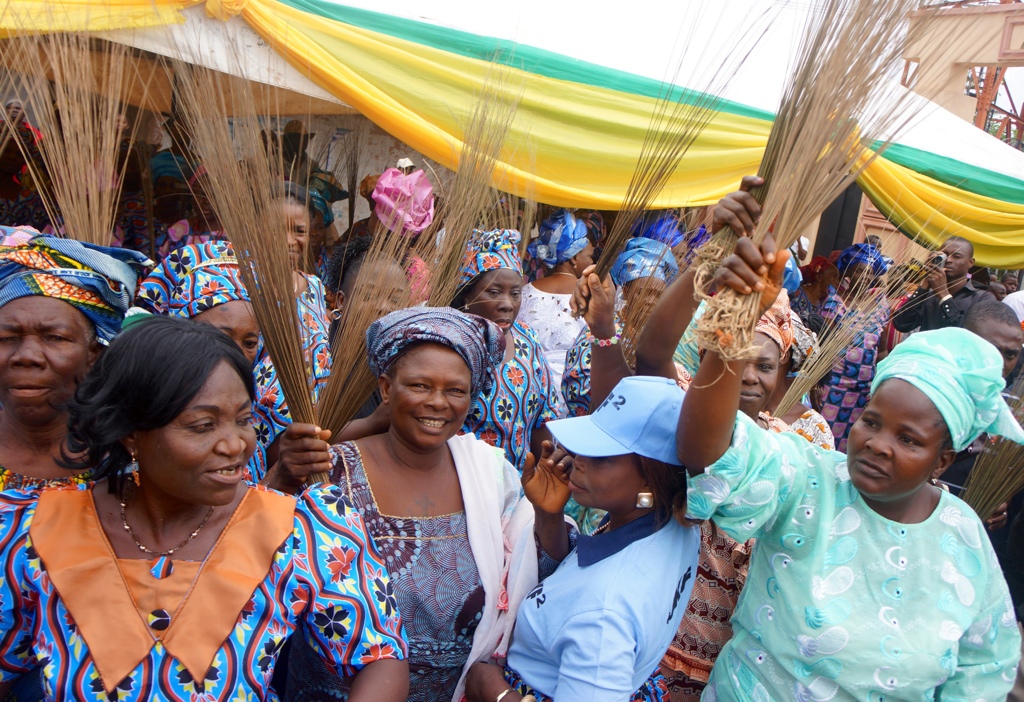
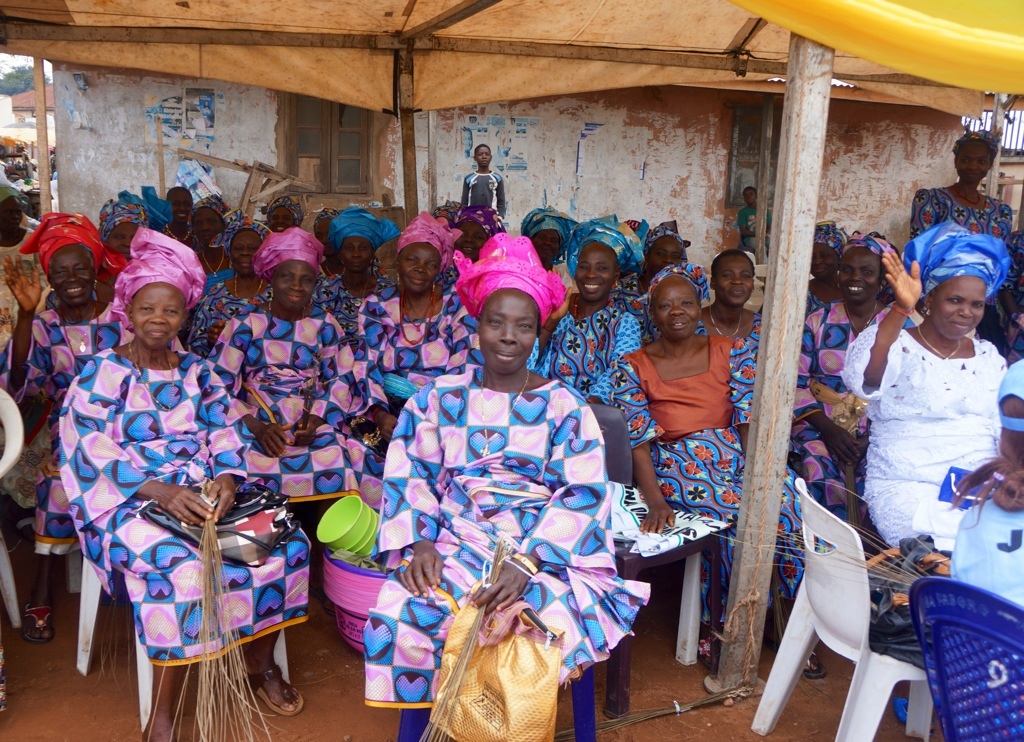
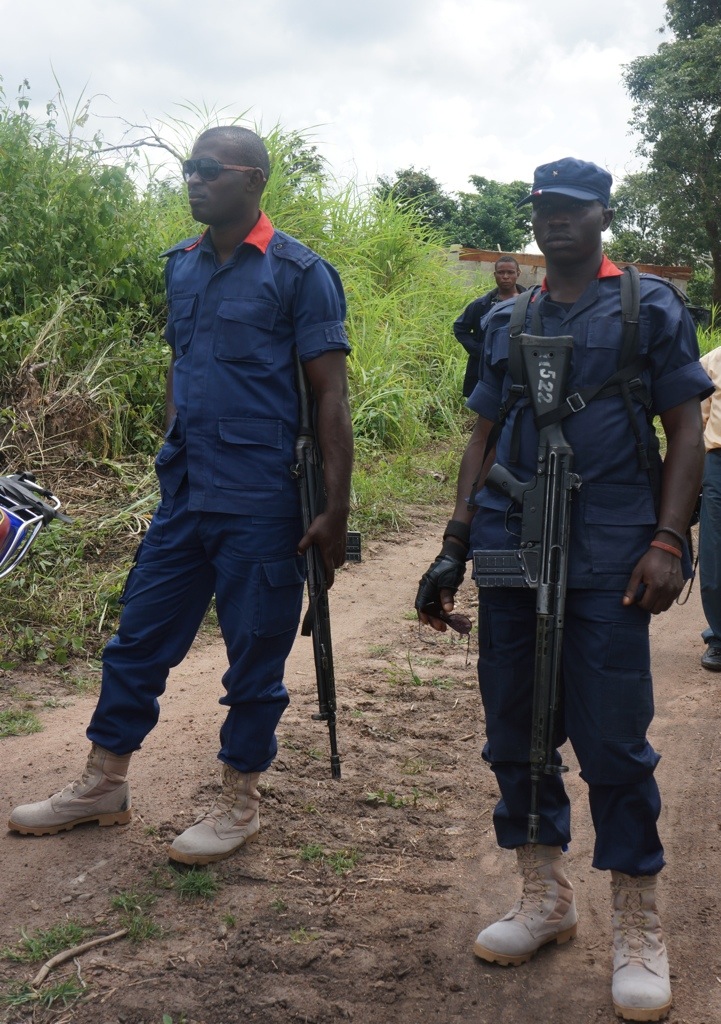
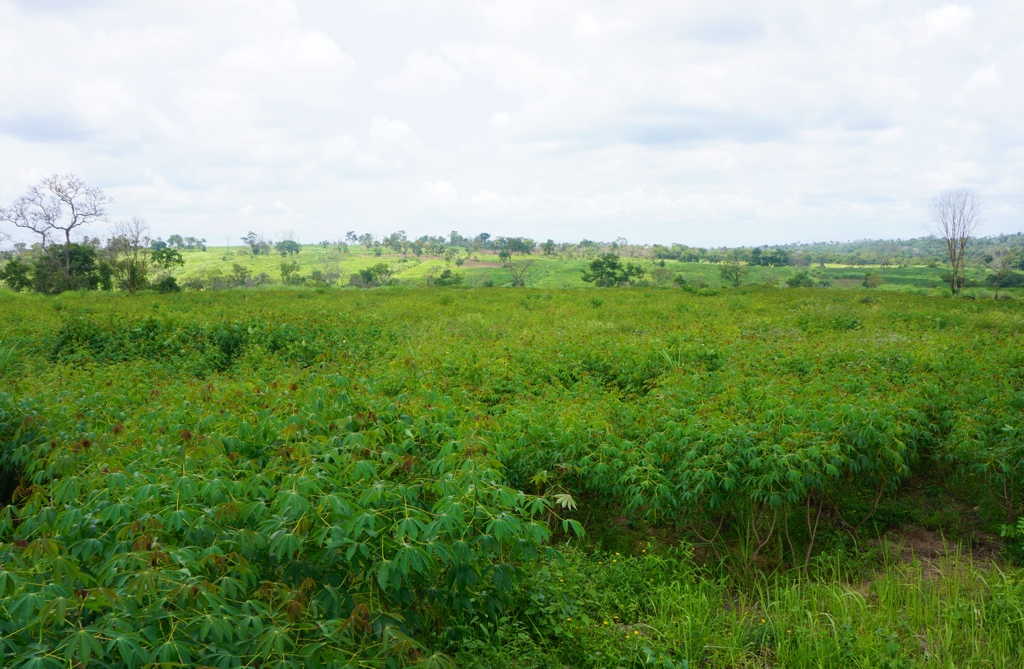
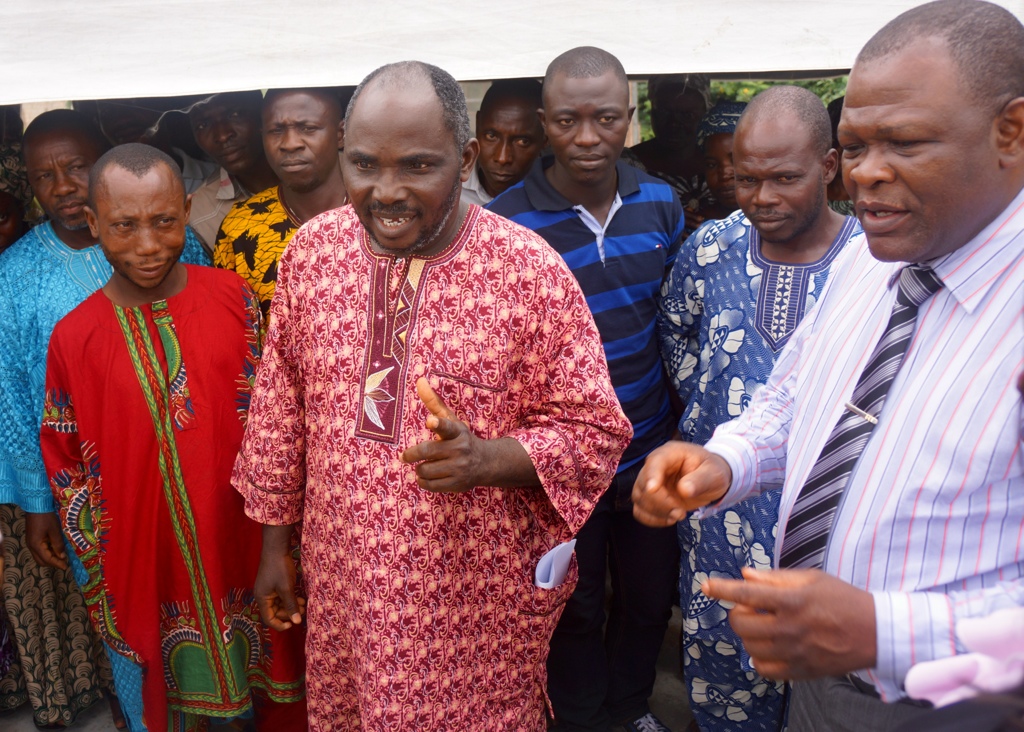
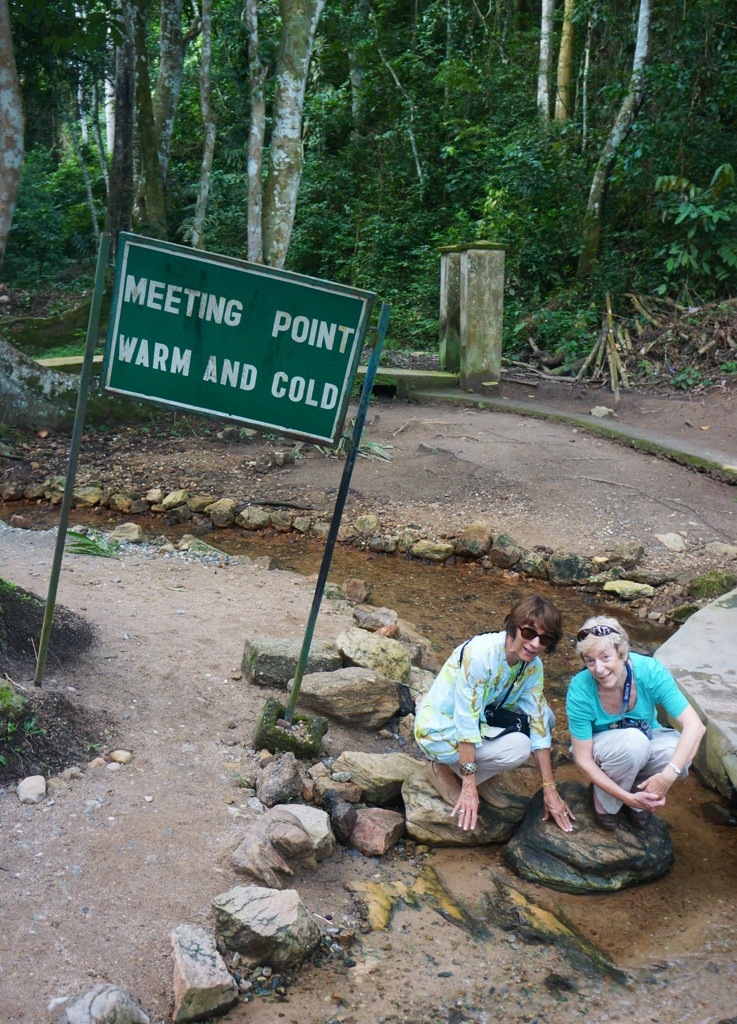
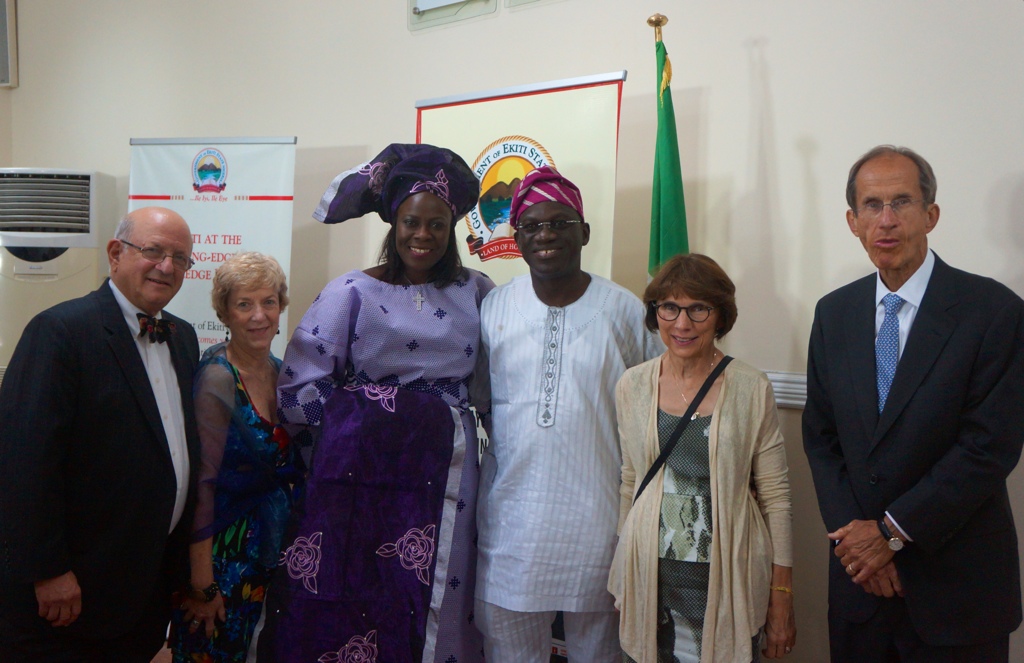

Interesting to learn about the market, the economic importance of processing rice, the scarcity of electrical power and it’s impact on industry, that many people you’re meeting on your travels have never seen white folks . . .
I especially like the first photo and the photo of the men. Nice photo of Maz and Susie, too!